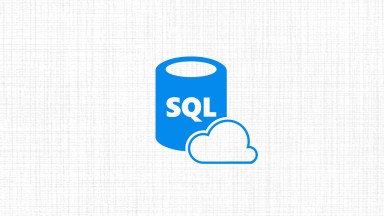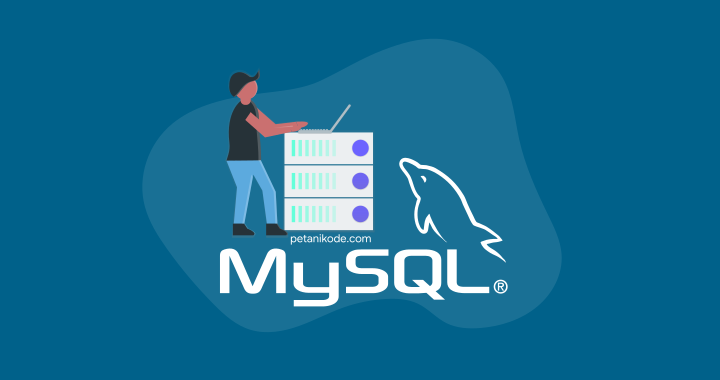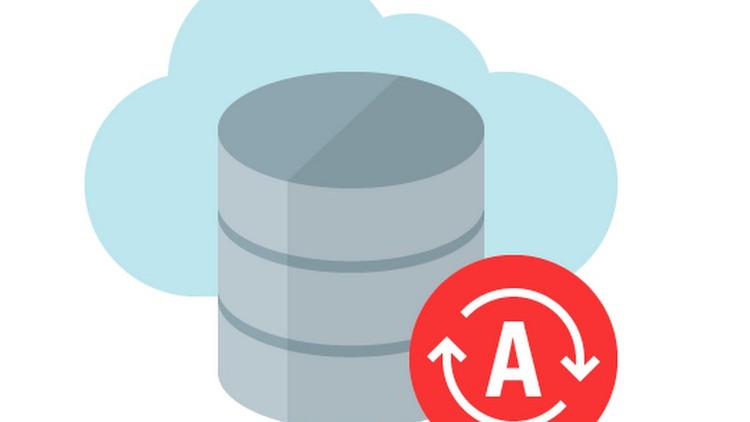



 Tech & IT
Tech & IT
 Business
Business
 Coding & Developer
Coding & Developer
 Finance & Accounting
Finance & Accounting
 Academics
Academics
 Office Applications
Office Applications
 Art & Design
Art & Design
 Marketing
Marketing
 Health & Wellness
Health & Wellness
 Sounds & Music
Sounds & Music
 Lifestyle
Lifestyle
 Photography
Photography
More Learnfly
Business Solution Become an InstructorDatabase Management involves organizing, storing, and retrieving data efficiently. It includes designing structures, defining relationships, and ensuring data integrity. Database Management Systems (DBMS) like MySQL, Oracle, or MongoDB are essential tools for effective data storage and retrieval in various applications.
.jpg)
By : Emar Morrison
PostgreSQL 16 Database Administration Essential Training ( WRONG FILESS)...
4.8 107
2:56:27 hrs 55 lectures Intermedite Level

By : Saurabh Asthana Asthana
Learn step by step with your own instance...
4 172
5:43:7 hrs 45 lectures All Level

By : Mazhar Hussain
Build Efficient MS Access Databases, Streamline Tasks, and Make Informed Decisions us...
4.1 456
1:23:43 hrs 23 lectures Beginner Level

By : Abhinav Saraogi
Easy Analysis With Tableau: Learn And Build COVID-19 Dashboard....
4.6 5989
9 lectures Beginner Level

By : Lorenz De Smedt
ETL Testing and Data Quality Management for beginners with practical exercises and ce...
4.3 80418
1:51:52 hrs 20 lectures Intermedite Level












Learn more topics in various categories at one place. Explore unlimited courses in other categories and up-skill yourself today.

 Jazeb Akram
Jazeb Akram 4.2 769662 Beginner Level

 John Hedengren
John Hedengren 4.1 568102 All Level

 Ranjan Pandey
Ranjan Pandey 4.1 345832 All Level

 Pieter Vliegenthart
Pieter Vliegenthart 4.6 99986 All Level

 Muhammad Ahsan Pervaiz
Muhammad Ahsan Pervaiz 4.2 99718 All Level

 Jerome P.
Jerome P. 4.8 99467 All Level

 Senol Atac
Senol Atac 4.9 99047 All Level

 Vikas Munjal
Vikas Munjal 4.8 99017 Beginner Level

 Chandramouli Jayendran
Chandramouli Jayendran 4.9 98566 Beginner Level
.jpg)
 Emar Morrison
Emar Morrison55 Lectures Intermedite

 Temotec Learning Academy
Temotec Learning Academy33 Lectures Intermedite

 Temotec Learning Academy
Temotec Learning Academy121 Lectures Intermedite

 Ahmed Ibrahim
Ahmed Ibrahim79 Lectures Intermedite

 Mohammed Abdelkarim
Mohammed Abdelkarim51 Lectures Intermedite

 Sachin Agrawal
Sachin Agrawal28 Lectures Intermedite

 Sonu Kumar
Sonu Kumar117 Lectures Intermedite

 SANEM AYDIN YAYLA
SANEM AYDIN YAYLA50 Lectures Intermedite

 Saurabh Asthana Asthana
Saurabh Asthana Asthana45 Lectures Intermedite

 Mazhar Hussain
Mazhar Hussain23 Lectures Intermedite

 test test
test test78 Lectures Intermedite

 Ali Bouali
Ali Bouali64 Lectures Intermedite

 Edwin Bomela
Edwin Bomela27 Lectures Intermedite

 Edwin Bomela
Edwin Bomela27 Lectures Intermedite

 Jobshie Academy
Jobshie Academy46 Lectures Intermedite

 Sekhar Metla (Microsoft Certified Professional) Sudha
Sekhar Metla (Microsoft Certified Professional) Sudha98 Lectures Intermedite

 Sekhar Metla (Microsoft Certified Professional) Sudha
Sekhar Metla (Microsoft Certified Professional) Sudha87 Lectures Intermedite

 Satyajit Pattnaik
Satyajit Pattnaik19 Lectures Intermedite

 Abhinav Saraogi
Abhinav Saraogi 9 Lectures Intermedite

 Web Coding
Web Coding19 Lectures Intermedite

 Tareq Alkhateeb
Tareq Alkhateeb 239 Lectures Intermedite

 Dave Merton
Dave Merton76 Lectures Intermedite

 Sekhar Metla (Microsoft Certified Professional) Sudha
Sekhar Metla (Microsoft Certified Professional) Sudha59 Lectures Intermedite

 Sekhar Metla (Microsoft Certified Professional) Sudha
Sekhar Metla (Microsoft Certified Professional) Sudha54 Lectures Intermedite

 Sekhar Metla (Microsoft Certified Professional) Sudha
Sekhar Metla (Microsoft Certified Professional) Sudha57 Lectures Intermedite

 Vardges Zardaryan
Vardges Zardaryan26 Lectures Intermedite

 Sanesh Kale
Sanesh Kale23 Lectures Intermedite

 Sanesh Kale
Sanesh Kale9 Lectures Intermedite

 Sanesh Kale
Sanesh Kale18 Lectures Intermedite

 Van Jordan
Van Jordan15 Lectures Intermedite

 Prashant Munshi
Prashant Munshi30 Lectures Intermedite

 koduru sridevi
koduru sridevi5 Lectures Intermedite

 koduru sridevi
koduru sridevi9 Lectures Intermedite

 koduru sridevi
koduru sridevi12 Lectures Intermedite

 Arunprakash P V
Arunprakash P V12 Lectures Intermedite

 Vikas Munjal
Vikas Munjal65 Lectures Intermedite

 Vikas Munjal
Vikas Munjal46 Lectures Intermedite

 Lorenz De Smedt
Lorenz De Smedt20 Lectures Intermedite

 koduru sridevi
koduru sridevi14 Lectures Intermedite

 Michael Enudi
Michael Enudi129 Lectures Intermedite

 Rashid Khan
Rashid Khan44 Lectures Intermedite

 Jazeb Akram
Jazeb Akram24 Lectures Intermedite

 Laurence Svekis
Laurence Svekis19 Lectures Intermedite
Database Management involves the efficient and organized storage, retrieval, and manipulation of data within a database system. It includes tasks such as designing database structures, ensuring data integrity, and optimizing database performance.
Effective Database Management is crucial for businesses to organize and access their data efficiently. It improves data accuracy, reduces redundancy, facilitates data security, and provides a structured framework for applications to interact with stored information.
A DBMS typically includes features like data definition (creating and modifying the structure of the database), data manipulation (inserting, updating, and deleting data), data retrieval (querying and retrieving information), and data integrity enforcement.
A Database Administrator (DBA) is responsible for managing and maintaining the database system. This includes tasks such as configuring the database, ensuring security, optimizing performance, and handling backups and recovery.
Database Management focuses on efficiently managing day-to-day transactional data within an organization. In contrast, Data Warehousing involves the collection, storage, and analysis of historical and aggregated data for decision-making and business intelligence purposes.





